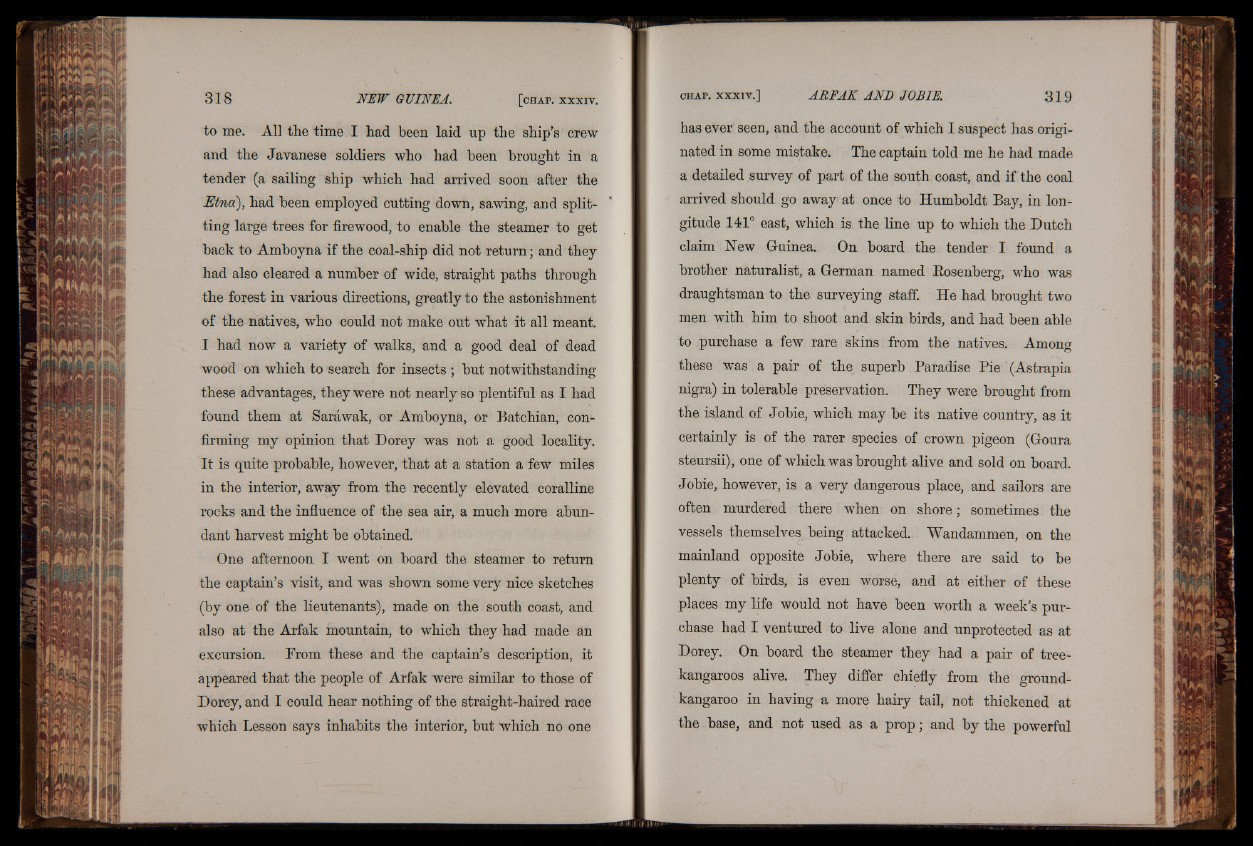
to me. All tlie time I had been laid up the ship’s crew
and the Javanese soldiers who had been brought in a
tender (a sailing ship which had arrived soon after the
Etna), had been employed cutting down, sawing, and splitting
large trees for firewood, to enable the steamer to get
back to Amboyna if the coal-ship did not return; and they
had also cleared a number of wide, straight paths through
the forest in various directions, greatly to the astonishment
of the natives, who could not make out what it all meant.
I had now a variety of walks, and a good deal of dead
wood on which to search for insects ; but notwithstanding
these advantages, they were not nearly so plentiful as I had
found them at Sarawak, or Amboyna, or Batchian, confirming
my opinion that Dorey was not a good locality.
It is quite probable, however, that at a station a few miles
in the interior, away from the recently elevated coralline
rocks and the influence of the sea air, a much more abundant
harvest might be obtained.
One afternoon I went on board the steamer to return
the captain’s visit, and was shown some very nice sketches
(by one of the lieutenants), made on the south coast, and
also at the Arfak mountain, to which they had made an
excursion. From these and the captain’s description, it
appeared that the people of Arfak were similar to those of
Dorey, and I could hear nothing of the straight-haired race
which Lesson says inhabits the interior, but 'which no one
has ever seen, and the account of which I suspect has originated
in some mistake. The captain told me he had made
a detailed survey of part of the south coast, and if the coal
arrived should go away at once to Humboldt Bay, in longitude
141° east, which is the line up to which the Dutch
claim Hew Guinea. On board the tender I found a
brother naturalist, a German named Bosenberg, who was
draughtsman to the surveying staff. He had brought two
men with him to shoot and skin birds, and had been able
to purchase a few rare skins : from the natives. Among
these was a pair of the superb . Paradise Pie (Astrapia
nigra) in tolerable preservation. They were brought from
the island of Jobie, which may be its native country, as it
certainly is of the rarer species of crown pigeon (Goura
steursii), one of which was brought alive and sold on board.
Jobie, however, is a very dangerous place, and sailors are
often murdered there when on shore ; sometimes the
vessels themselves being attacked. Wandammen, on the
mainland opposite Jobie, where there are said to be
plenty of birds, is even worse, and at either of these
places my life would not have been worth a week’s purchase
had I ventured to live alone and unprotected as at
Dorey. On board the steamer they had a pair of tree-
kangaroos alive. They differ chiefly from the ground-
kangaroo in having a more hairy tail, not thickened at
the base, and not used as a prop; and by the powerful